
The Three Stooges, Moe, Larry, and Curly, were one of the most popular American comedy acts of the 20th century. Their slapstick antics and physical comedy entertained audiences for decades, and their influence on popular culture is still felt today.
As the holidays are approaching, you may want to consider giving the knuckleheads on your Christmas list a gift from the Three Stooges store at Amazon.
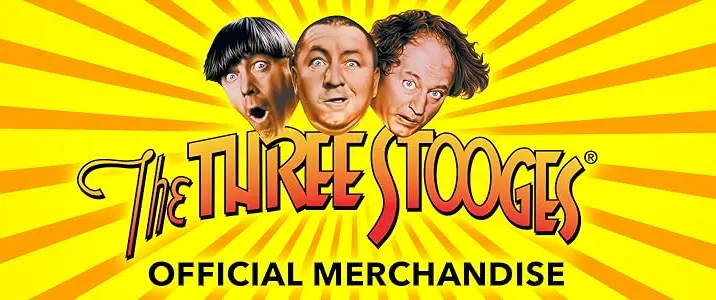 The Three Stooges originated as a vaudeville act in the early 1920s. Moe Howard, the de facto leader of the group, was the straight man, while his brother Shemp Howard was the comic foil. Larry Fine joined the group in 1925, and Curly Howard, Moe’s younger brother, joined in 1932. The Three Stooges’ real names were Moe Howard (Moses Horwitz), Larry Fine (Louis Feinberg), Curly Howard (Jerome Horwitz), Shemp Howard (Samuel Horwitz), Joe Besser (Joseph Besserman), and Joe DeRita (Joseph DeRita).
The Three Stooges originated as a vaudeville act in the early 1920s. Moe Howard, the de facto leader of the group, was the straight man, while his brother Shemp Howard was the comic foil. Larry Fine joined the group in 1925, and Curly Howard, Moe’s younger brother, joined in 1932. The Three Stooges’ real names were Moe Howard (Moses Horwitz), Larry Fine (Louis Feinberg), Curly Howard (Jerome Horwitz), Shemp Howard (Samuel Horwitz), Joe Besser (Joseph Besserman), and Joe DeRita (Joseph DeRita).
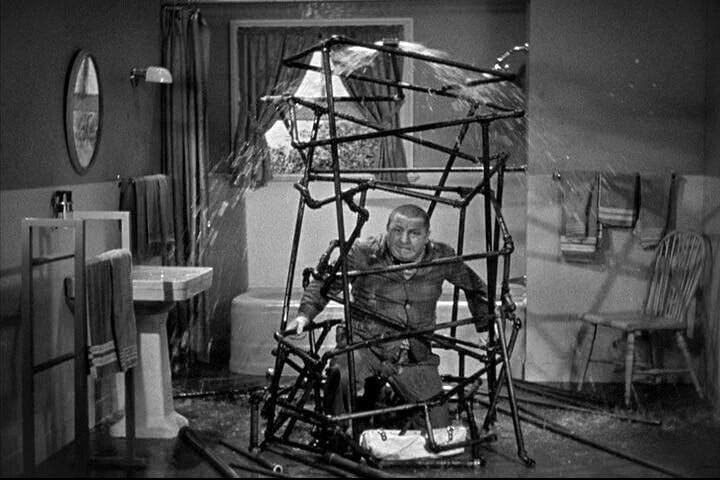
The Three Stooges’ big break came in 1934 when they signed with Columbia Pictures. They made 190 short films, typically six to eight minutes long, for Columbia over the next 25 years.
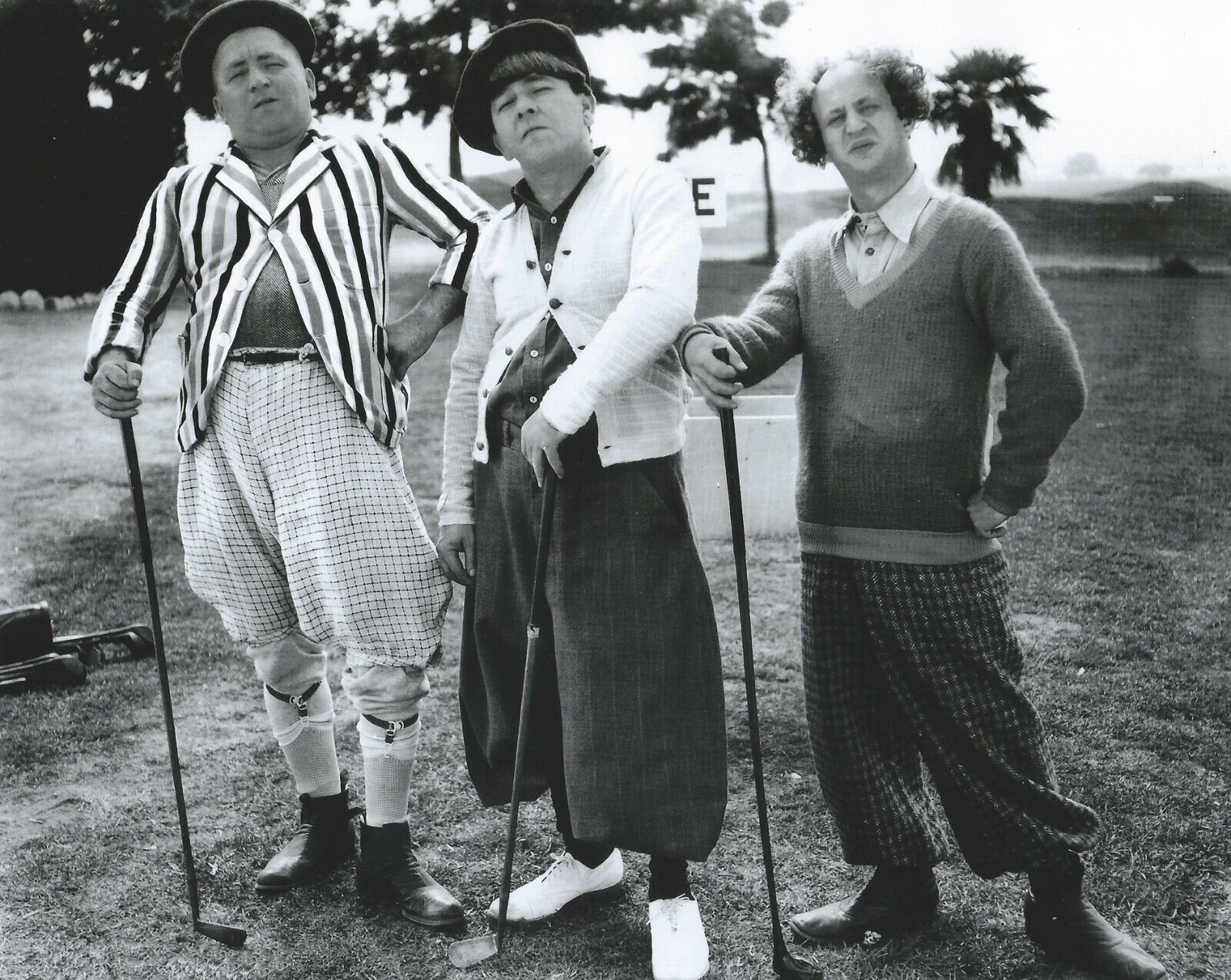 Within their first year at Columbia, theater bookings for the Stooges films took off. Columbia Pictures president Harry Cohn was able to use the Stooges as leverage, as the demand for their films was so great that he eventually refused to supply exhibitors with the trio’s shorts unless they also agreed to book some of the studio’s mediocre B movies. During their 23 years at Columbia, the Stooges were never completely aware of their amazing drawing power. Their contracts with the studio included an open option that had to be renewed yearly, and Cohn would tell them that the short subjects were in decline, which was not a complete fabrication (Cohn’s yearly mantra was “the market for comedy shorts is dying out, fellas”).
Within their first year at Columbia, theater bookings for the Stooges films took off. Columbia Pictures president Harry Cohn was able to use the Stooges as leverage, as the demand for their films was so great that he eventually refused to supply exhibitors with the trio’s shorts unless they also agreed to book some of the studio’s mediocre B movies. During their 23 years at Columbia, the Stooges were never completely aware of their amazing drawing power. Their contracts with the studio included an open option that had to be renewed yearly, and Cohn would tell them that the short subjects were in decline, which was not a complete fabrication (Cohn’s yearly mantra was “the market for comedy shorts is dying out, fellas”).
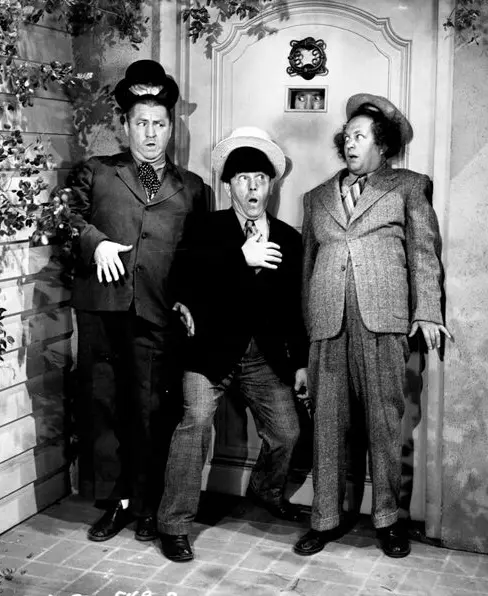 The Stooges thought that their days were numbered and would sweat it out each year, with Cohn renewing their contract at the last moment. This deception kept the insecure Stooges unaware of their true value, resulting in them having second thoughts about asking for a better contract without a yearly option. Cohn’s scare tactics worked for all 23 years that the Stooges were at Columbia; the team never once asked for a salary increase—nor were they ever given one.
The Stooges thought that their days were numbered and would sweat it out each year, with Cohn renewing their contract at the last moment. This deception kept the insecure Stooges unaware of their true value, resulting in them having second thoughts about asking for a better contract without a yearly option. Cohn’s scare tactics worked for all 23 years that the Stooges were at Columbia; the team never once asked for a salary increase—nor were they ever given one.
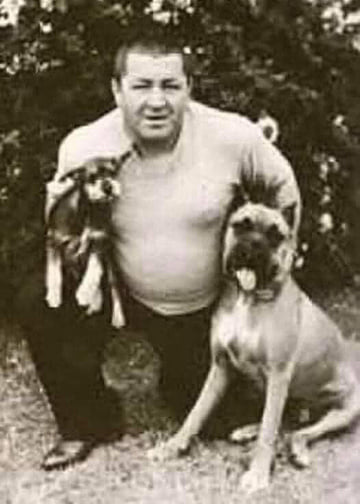
The Stooges never received royalty payments or residuals when their movies were played on television; their contract with Columbia Pictures made no provision for such payments.
Curly’s goofy walk is the result of an accidental self-inflicted gunshot wound to the left ankle when he was 12.
When filming the pie fights featured in several shorts, directors such as Jules White would avoid anticipation or flinching with misleading timing; e.g., telling an actor they would be hit with a pie on the count of three, while secretly instructing the person hurling the pastry (often Moe himself, known for his deadly accuracy) to throw it on two.
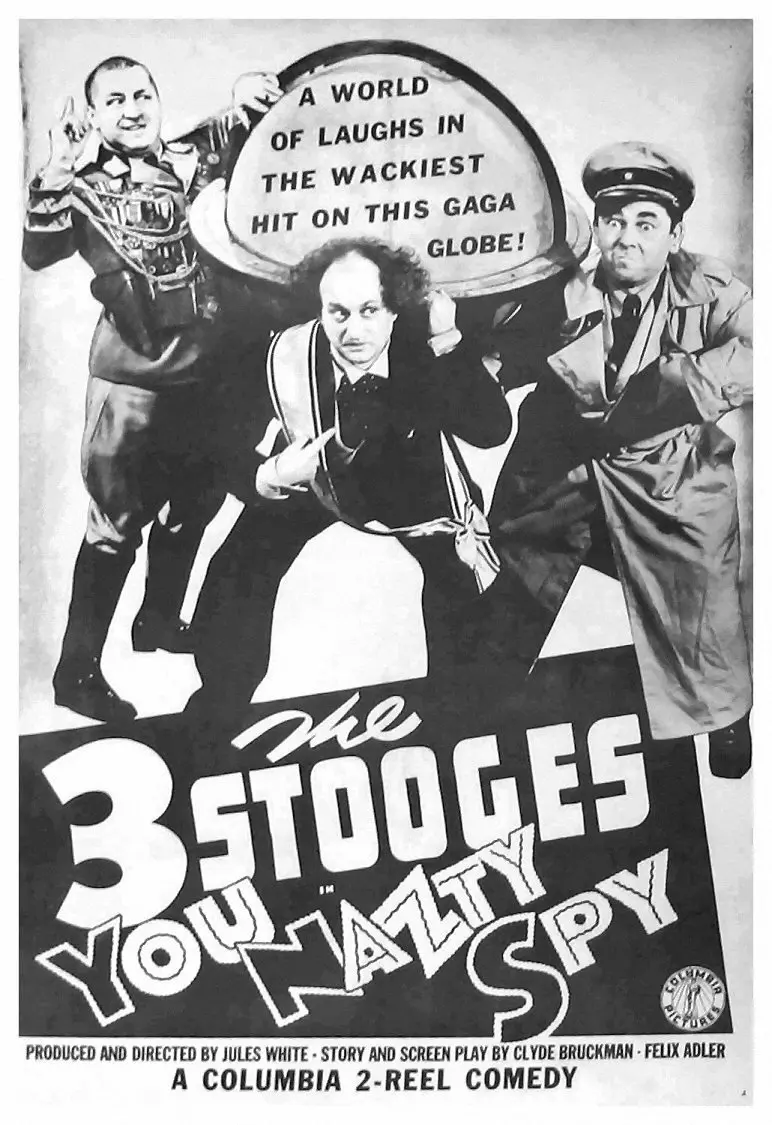 The Three Stooges were once listed on Adolf Hitler’s death list. The short film You Nazty Spy! (1940) was the first American production to openly make a mockery of Hitler’s regime.
The Three Stooges were once listed on Adolf Hitler’s death list. The short film You Nazty Spy! (1940) was the first American production to openly make a mockery of Hitler’s regime.
The Three Stooges were a comedy institution, and their legacy continues to endure today. Their films are still enjoyed by audiences of all ages, and their influence can be seen in the work of many modern comedians.
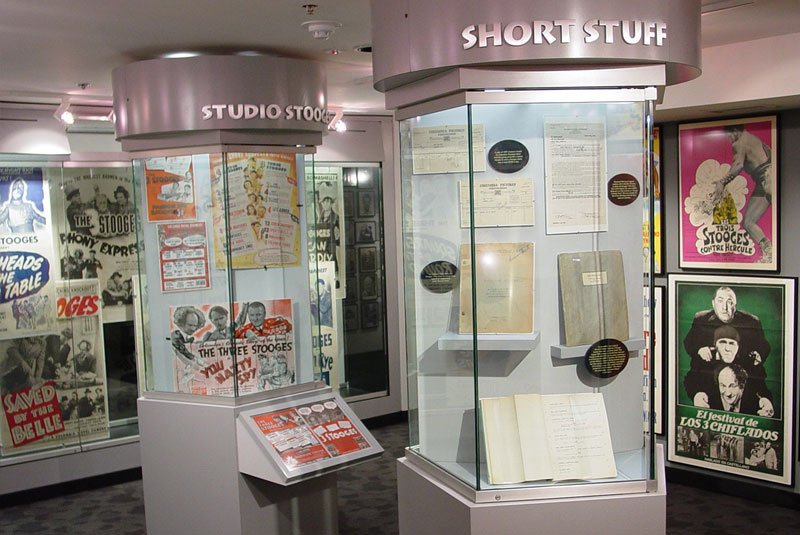
The Stooges’ vital contributions to pop culture have always deserved some archival recognition. They got it in 2004, when The Stoogeum opened its doors in Ambler, Pennsylvania, about 25 miles outside of Philadelphia. The museum’s founder is Gary Lassin, who married Larry Fine’s great niece in 1981. A Stooges fan, Lassin acquired over 100,000 items related to their careers and displays roughly 3500 pieces at a time. There’s a Hall of Shemp, a game area (with Whack-a-Moe), as well as countless artifacts.
The Lost Stooges Movies
Before the Columbia years, Ted Healy and the Stooges were featured in MGM shorts like Nertsery Rhymes, Plane Nuts, and The Big Idea. Often billed as “Howard, Fine, and Howard,” the MGM shorts reveal the origins of many Stooge standards like Curly’s “Nyuk-Nyuk” and Larry’s “I’ll work when I’m ready.”
Hello Pop! 1933
Nertsery Rhymes 1933
Beer and Pretzels 1933
The Big Idea (1934)

![“In Snooki We Trust” – Nicole “Snooki” Polizzi Heads North in New Series, “Canada Shore” [VIDEO]](https://mortystv.com/blog/wp-content/uploads/2026/01/In-Snooki-We-Trust-350x250.webp)
![Official Roku Channel Trailer for “On the Edge with Juanpa” [VIDEO]](https://mortystv.com/blog/wp-content/uploads/2026/01/On-the-Edge-with-Juanpa-350x250.webp)
![Official Netflix Trailer for “One Piece” Season 2 [VIDEO]](https://mortystv.com/blog/wp-content/uploads/2026/01/one-peice-350x250.webp)
![Nominees Announced for the “57th NAACP Image Awards” Airing Live from the Pasadena Civic Auditorium Saturday, February 28th at 8 PM ET/ 8 PT on BET and Simulcasting on CBS [VIDEO]](https://mortystv.com/blog/wp-content/uploads/2026/01/57th-NAACP-Image-Awards-feat-350x250.jpg)
![A Historic Fan-Powered Celebration: “Survivor 50 Challenge” Grand Prize Revealed [VIDEO]](https://mortystv.com/blog/wp-content/uploads/2026/01/survivor-50-joinin-feat-350x250.webp)
![Official Prime Video Teaser for “The Bluff” [VIDEO]](https://mortystv.com/blog/wp-content/uploads/2026/01/the-bluff-350x250.webp)
![New Series! “Murder in Boston: Roots, Rampage and Reckoning” Monday, December 4 @ 9PM ET on HBO [VIDEO]](https://mortystv.com/blog/wp-content/uploads/2023/12/Murder-in-Boston-75x75.webp)


